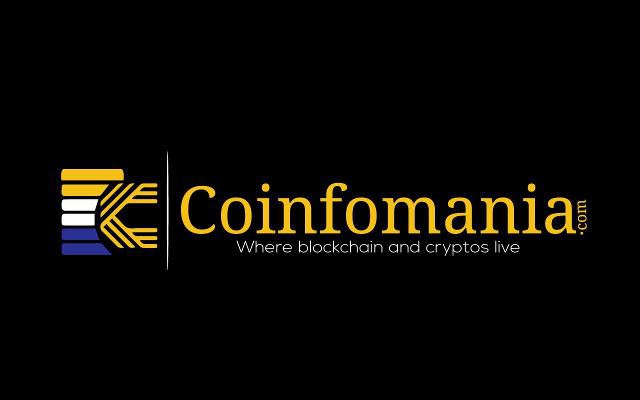Craig Wright Loses Legal Battle, Bitcoin White Paper Returns to Bitcoin.org
1
0

After a series of protracted legal battles, Craig Wright, an Australian computer scientist, failed to substantiate his claims of being Satoshi Nakamoto, the enigmatic creator of Bitcoin.
The controversy culminated in a decisive verdict by Judge James Mellor of the High Court of Justice of the United Kingdom, who unequivocally dismissed Wright’s assertions. This ruling marked a significant chapter in the saga surrounding the identity of Bitcoin’s founder and its implications for copyright claims over the cryptocurrency’s foundational technologies.
Wright’s Legal Challenges and Court Rulings Regarding The White Paper
Wright’s legal confrontations began when he claimed to have authored the Bitcoin white paper and assumed the pseudonym Satoshi Nakamoto. His efforts to assert ownership were met with widespread skepticism and legal challenges.
In a notable 2021 lawsuit, Wright targeted Cobra, the pseudonymous entity behind Bitcoin.org, alleging copyright infringement. The court sided with Wright after Cobra opted not to defend the case, leading to a mandate that compelled the removal of the white paper from the website and resulted in Cobra being ordered to pay £35,000 in legal fees.

In a subsequent and more ambitious legal move in 2023, Wright sued 13 Bitcoin Core developers and several prominent companies, including Blockstream, Coinbase, and Block, on similar grounds of copyright infringement relating to the Bitcoin white paper, its file format, and the database rights to the Bitcoin blockchain.
This action prompted the formation of the Bitcoin Legal Defense Fund, which underscored the escalating trend of litigations that they described as “abusive” and a deterrent to the development of Bitcoin due to the immense stress and financial burdens they imposed on contributors.
The Trial and Its Outcomes
The definitive blow to Wright’s claims came during a February 2024 trial brought against him by the Crypto Open Patent Alliance (COPA), a coalition of significant industry players dedicated to keeping Bitcoin’s core intellectual property open and unowned. COPA accused Wright of engaging in a complex fraud, including forging documents to support his claim as Nakamoto.
Throughout the trial, COPA’s attorneys presented a compelling array of evidence and expert testimonies that exposed numerous forgeries, inconsistencies, and technical inaccuracies in Wright’s presented documents. These ranged from metadata discrepancies to formatting issues that starkly contradicted the characteristics expected of the true Bitcoin creator.
Judge Mellor’s judgment was scathing and definitive. He stated that Wright was not the author of the Bitcoin white paper, nor had he operated under the pseudonym Satoshi Nakamoto during the critical founding period of Bitcoin from 2008 to 2011.
Moreover, Mellor explicitly declared that Wright was “not the creator of the Bitcoin network.” This ruling not only invalidated Wright’s earlier copyright victory but also reinforced the notion of Bitcoin’s decentralized nature, free from the grip of unfounded individual ownership claims.
Implications and Future Focus
Despite the clear verdict, Wright signaled his intention to appeal, supported by a cadre of followers who encouraged his ongoing legal endeavors. However, the trial records painted a less favorable picture of Wright, depicting him as evasive and inconsistent. The court criticized his penchant for “technobabble” — convoluted, technical jargon that obfuscated rather than clarified his points, which was uncharacteristic of someone with genuine involvement in Bitcoin’s creation.
The judgment has broader implications, reinforcing the necessity of credibility and rigorous proof in legal disputes over digital assets. It underscores the importance of authenticity in claims related to the pioneering technologies of the digital age.
In light of this ruling, the focus within the Bitcoin community is expected to shift. Instead of entangling itself in legal disputes over foundational claims, the community is likely to explore new applications and push for broader acceptance of Bitcoin.
This aligns with the objectives of entities like COPA and the Bitcoin Legal Defense Fund, which aim to safeguard the collective interests of developers and contributors, ensuring that they can continue their work without the shadow of costly litigation.
Meanwhile, Hennadii Stepanov, the maintainer of the Bitcoin.org website, marked the closure of this contentious chapter by re-uploading the Bitcoin white paper, signaling a return to normalcy and continued openness in Bitcoin’s developmental journey. This act was celebrated across various platforms, reinforcing the resilient nature of information and its capacity to endure despite attempts at suppression.
The post Craig Wright Loses Legal Battle, Bitcoin White Paper Returns to Bitcoin.org appeared first on Coinfomania.
1
0







